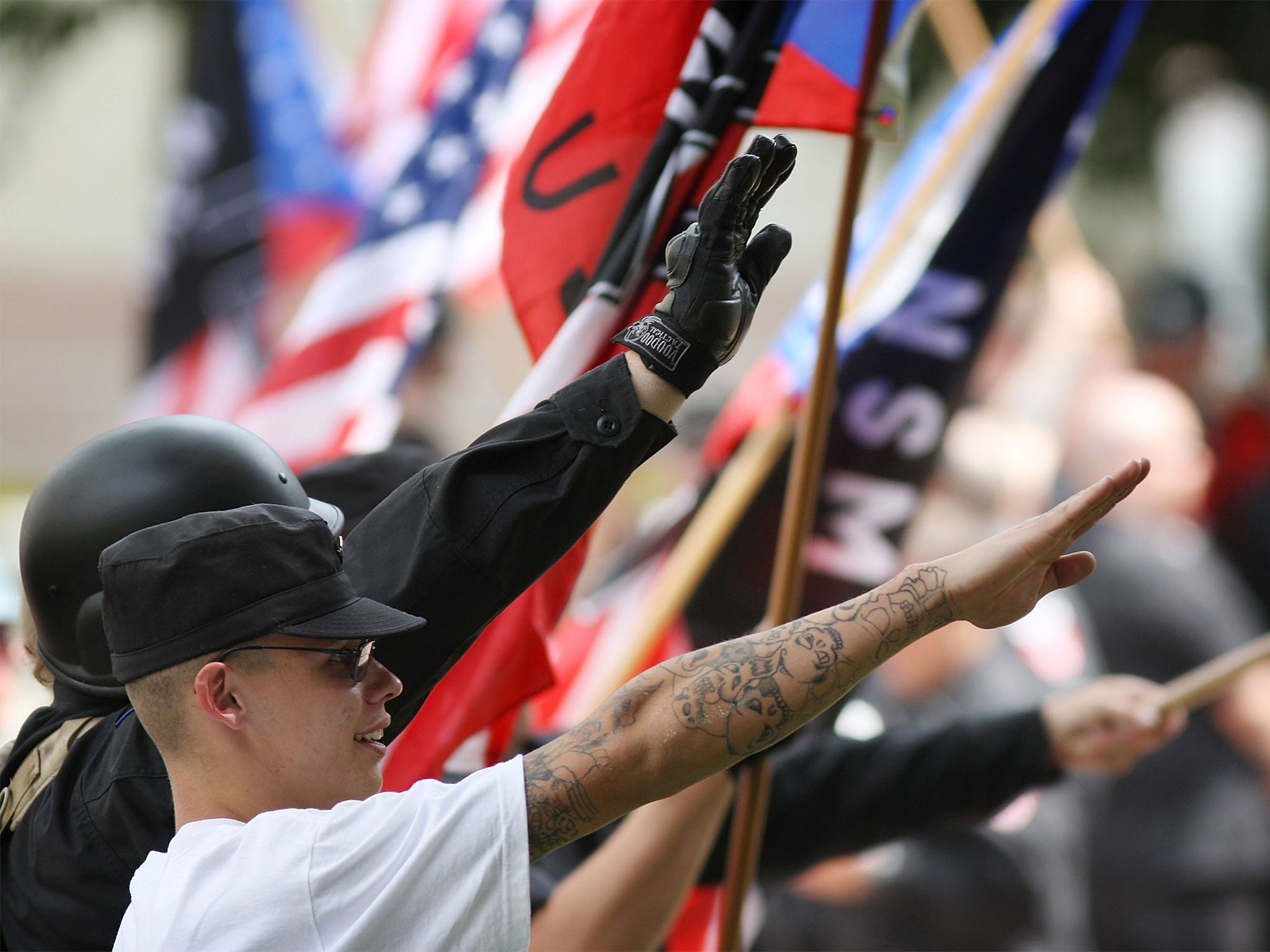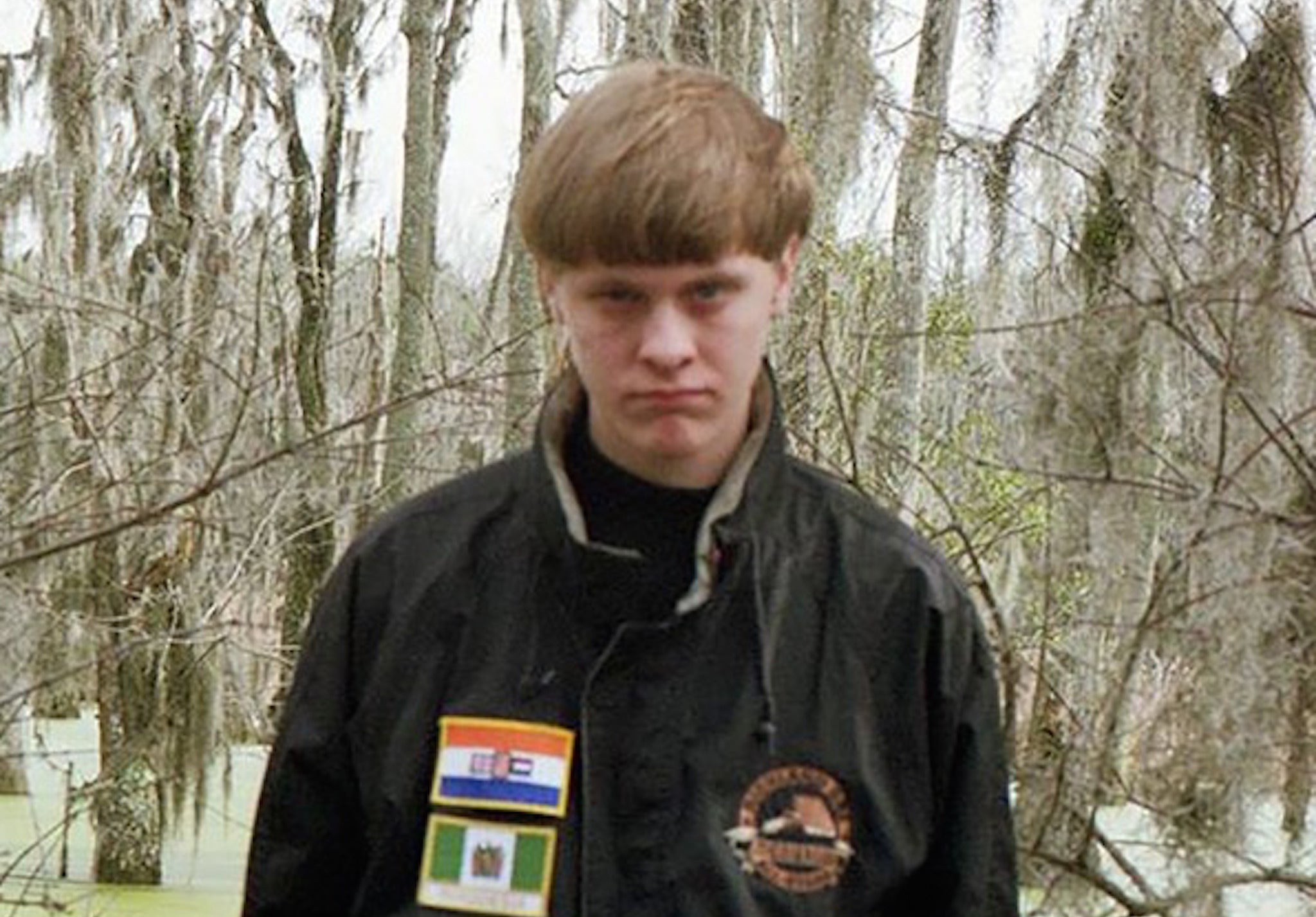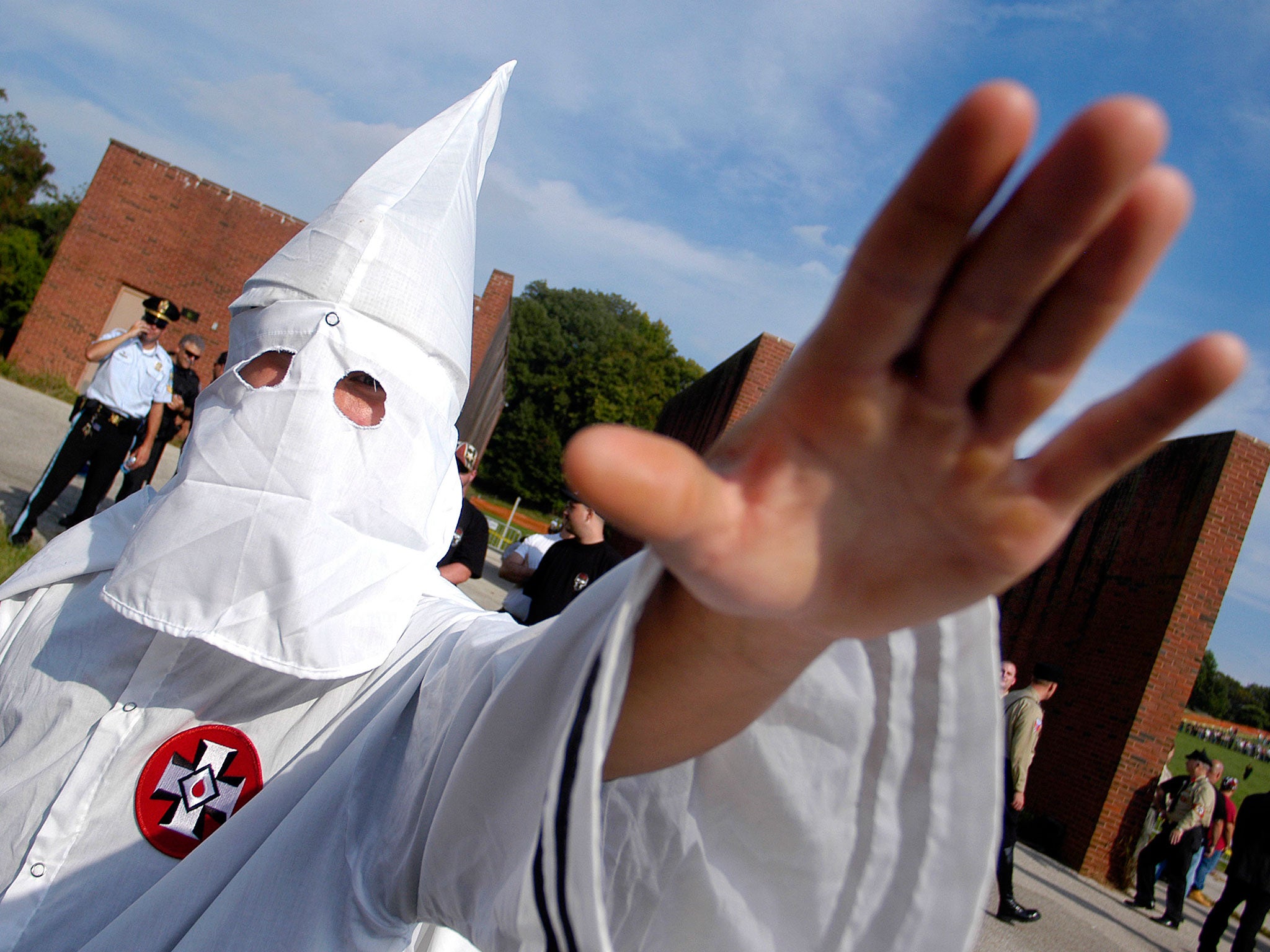Charleston shooting: Dylann Roof 'wanted a race war'. How many Americans want the same?
There are 784 hate groups operating in the United States

Your support helps us to tell the story
From reproductive rights to climate change to Big Tech, The Independent is on the ground when the story is developing. Whether it's investigating the financials of Elon Musk's pro-Trump PAC or producing our latest documentary, 'The A Word', which shines a light on the American women fighting for reproductive rights, we know how important it is to parse out the facts from the messaging.
At such a critical moment in US history, we need reporters on the ground. Your donation allows us to keep sending journalists to speak to both sides of the story.
The Independent is trusted by Americans across the entire political spectrum. And unlike many other quality news outlets, we choose not to lock Americans out of our reporting and analysis with paywalls. We believe quality journalism should be available to everyone, paid for by those who can afford it.
Your support makes all the difference.Dylann Roof has confessed to the murder of nine people at a South Carolina church on Wednesday, according to officials. And one of Roof's friends has said that Roof wanted to start a race war — the kind of sentiment that's common in the avowed white supremacist crowd.
But just how prevalent is this brand of racism? And how many others might feel the same way as Roof? The problem is it's really hard to say.
There are 784 hate groups operating in the United States, according to the Southern Poverty Law Center, a Montgomery, Alabama-based organization that tracks and analyzes hate groups and hate crime in the United States. That figure includes neo-Nazi organizations, local and regional arms of the Klu Klux Klan, white nationalists, neo-Confederate and racist skinhead groups, as well as border vigilante and black separatist organizations. Its definition also includes some well-known social conservative groups that oppose homosexuality and LGBT rights, which some on the right dispute constitutes a “hate” group. But white supremacists comprise the bulk of these groups.
Of course, hate group tallies and membership can paint only a partial portrait of racism in the United States. Some racists don't understand themselves as such. Others would never adopt a white supremacist label or join a white supremacist group. And others still might be all of the above but would stop well shy of violence and “race wars.”
And then, there's the matter of just how readily racist sentiment can even be measured. In October 2012, an Associated Press survey conducted by researchers from Stanford University, the University of Michigan and the University of Chicago found what many Americans of colour already suspect: Anti-minority sentiment is part of the American tapestry, no matter what structural moves toward equality have been made.

A full 51 per cent of Americans expressed explicit anti-black attitudes, compared with 48 per cent in a similar 2008 survey. And when researchers used tests to measure implicit and sometimes unconscious bias, the share of Americans with anti-black sentiments jumped to 56 per cent, up from 49 per cent in 2008.
And the way that Americans think about Latinos was not better. A 2011 AP survey found that 52 per cent of non-Hispanic whites expressed explicit anti-Hispanic attitudes. And a stunning 57 per cent did the same in an implicit bias test. The AP did not conduct previous studies on attitudes about Latinos.
Of course, these studies are testing for racist tendencies that people might not even be aware of — not avowed white supremacism or anything close to it.
But whatever the limits of a hate group data and attempts to measure the feelings of Americans, the combination might be the best information available when it comes to just how many Americans have deep-seated racist feelings. And that's likely to be the case for the foreseeable future.

In 2009, the Department of Homeland Security released a report analyzing, among other things, participation in domestic hate groups and recruiting efforts. The report revealed that some hate groups focus their recruiting energy on veterans and those entering the military, and it described veterans struggling after a return from war and those affected by the recession as particularly vulnerable to these outreach efforts.
Conservative critics of the report described it as an insult to a whole range of anti-abortion and anti-immigration groups as well as an unnecessary attempt to smear veterans.
The controversy has had consequences. Despite warnings from a range of civil rights and law enforcement agencies that hate group activity seems to be on the rise, the Department of Homeland Security scaled back efforts and even the number of staff charged with tracking non-Islamic domestic extremism.
The FBI does track hate crimes and trends but relies on local law enforcement agencies to identify and pass along the information the agency needs. This approach means that what happens in some states — like Mississippi — simply aren't part of the FBI's annual tally of hate crime and the assessments of local police officers shape which crimes are even investigated as possible hate crimes, much less described as such to the FBI.
Even the term “hate group” has joined the list of issues that appear to be viewed through a political lens. That has already spilled over into the national conversation about the church shooting this week.
Witness reports indicate that Roof's statements during the shooting included a claim that, “I have to do it. You rape our women, and you are taking over our country. And you have to go.” But some Americans have questioned law enforcement's decision to describe the shooting as a possible hate crime. And several conservative politicians have suggested the attack might not be a matter of racial animus but part of an ongoing attack on Christians — or that Roof's motives remain unclear.
The full list of reasons that Roof entered a South Carolina church and, according to his confession, shot and killed nine people, might never be known. But just how many race-war seeking Americans walk among us seems just as elusive.
Copyright: The Washington Post
Join our commenting forum
Join thought-provoking conversations, follow other Independent readers and see their replies
Comments